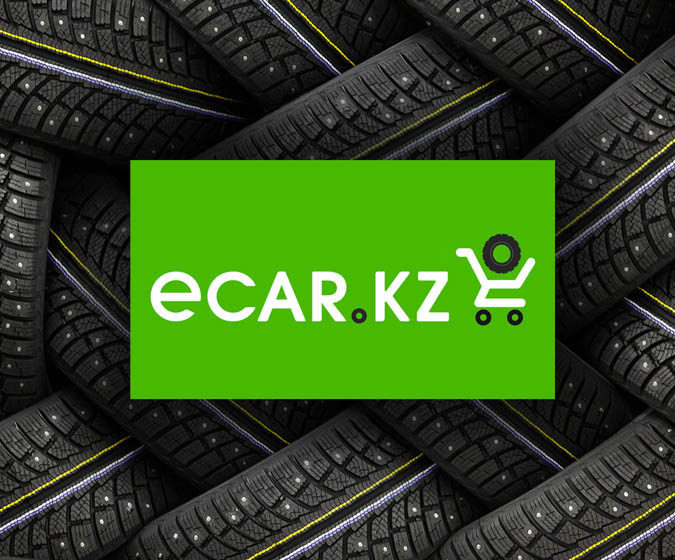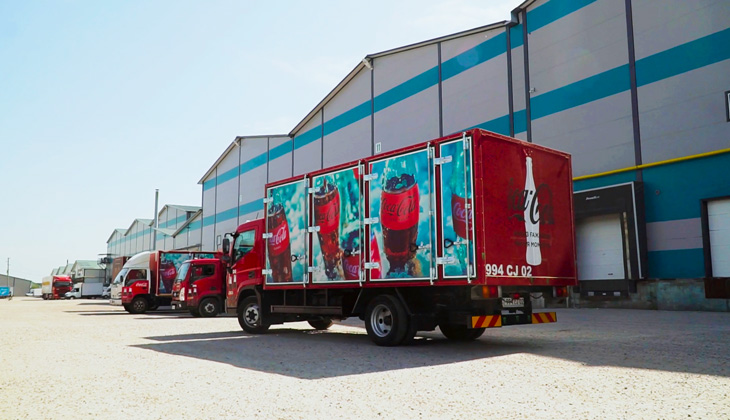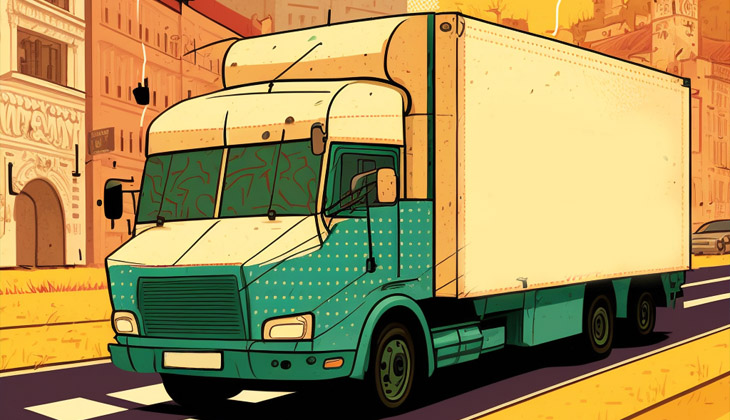Ecar.kz tire hypermarket has been operating in the market of the largest and most densely populated region of Kazakhstan - Almaty for 10 years and carries out almost 50% of tire sales in the field of e-commerce. Being an online store from the very beginning, the company was able to compete with the largest marketplace in the country and retain customers despite the fact that, on average, car owners change tires every 2.5 years and often forget where they bought tires. Ecar.kz Development Director Mikhail May spoke about ways to keep the business profitable – annual sales are equal to volumes of 4-5 offline stores.
The company was founded in 2012, but until then, Mikhail and his partner had been developing a social network for motorists for several months. The idea to sell tires came unexpectedly. Having decided to implement the given idea, they turned social network into an online store in a few days.
"Then we had only one employee who answered calls from customers who visited our company's website. We invested KZT 100 thousand in business and bought a used server to host a website. Already one year later, 500 people a day visited our website and it was a lot since so many people do not go to the physical store", says Mikhail May.
Our business started to grow. Partners invested almost all the money earned in development of the company. Level of service is increased as well. Now the site traffic is 10 thousand people a day, particularly in the peak season of tire change – October, November.
"We believe that most of the tire buyers in Almaty visit our website to look at prices before deciding to buy anywhere. Company's turnover reached KZT 1 billion in 2018, then there were small fluctuations, but in 2021 the amount made up KZT 1 billion again" Mikhail adds.
In 2018, a major competitor – Kaspi marketplace appeared on the market, which consists of various actors, including tire sellers. Today there may be a couple of classic online stores with this product left in Almaty.
"We own about 50% of online sales in the city, if we do not take into account Kaspi, since it is a marketplace, not classic e-commerce. In general, we are in strong competition with offline stores, which is grabbing the biggest piece of sales by switching to online. Kaspi helps them a lot in such transition", Mikhail May explains.
The company has to make 2 deliveries to fulfill each order – first you need to pick up the goods from distributors, sometimes from several ones, then bring them to customers. There are orders that are delivered to the transport company or export point – tire fitting. But somehow it is a dual delivery. The night before, logistician, having received the entire list of orders, formed a route of each courier (5-13 people, depending on the season), approximately indicating where the addresses are.
"Each driver received invoices and list of orders in the morning, including 9-10 points on average. We did not know what kind of delivery and at what stage of service it was during the day. Couriers returned to the office most often the next morning for new lists and reported that some orders were not served. Reasons were different: someone could not receive the goods, someone did not get through to the customer, someone's car broke down, etc. But it is impossible to build a high-quality service if customers call and say that tires have not been delivered to them and you do not know what to answer", Mikhail May explains.
It was impossible to find out from the drivers since logistician could not remember which courier got which address for delivery.
"We have always been a company that strives for automation, so this was a big problem for us. We began to look for different TMS in order to solve this problem. I looked through Russian systems as well, which operated on the market for several years. But they had very complex interfaces, similar to 1C, so they had to be studied for a long time", the businessman explains.
Together with his partner, he even thought about creating his own system and making delivery more controlled. At the end of 2018 he learned about Relog program.
"I studied the system and realized that this is what we need, and in January 2019 we uploaded the first applications to Relog. Only nuance is that our dual delivery scheme did not work in the system then. But it works now. So we have to rebuilt the business process: we created our own warehouse, divided logistics into two stages - receipt of goods and delivery to customers. That is, at first drivers took the orders, brought them to warehouse, packed them and attached corresponding documents, formed new orders for delivery and delivered the goods", Mikhail describes.
As a result, ecar.kz managed to achieve several goals:
- Increasing degree of business automation. Applications from the company's system automatically get into Relog; logistician can distribute applications along routes at any time; data on distribution of applications are imported into the accounting system; accountant compiles power of attorney in the accounting system with one click to receive goods from each supplier;
- Control of the delivery process at all stages, starting with the receipt of goods and ending with transfer to the buyer. Logistician sees on the map where the couriers are and where they are going, knows what type of goods they received from supplier, which of the customers they were able to deliver, respectively, can answer the questions of those who, for some reason, are still waiting for delivery;
- Goods are returned via Relog system. For example, buyer refused to pick up a set of tires from the company's office, his/her order is canceled and an application that the courier should pick up tires and take them to warehouse is automatically created in the system. So, it is impossible to forget about such applications;
- Effective management of staff of drivers. The system shows when drivers finish working, and if they have to work further for objective reasons, this is a sign that it is necessary to attract additional couriers;
- Deadlines for execution of orders, that is, from the moment of receipt until they are marked as completed in the system, have decreased by almost 2 times. In 2018, before ecar.kz started working with Relog, average execution time of one order was 4.6 days, and in 2021 – 2.9 days.
It is quite difficult to keep customers in the tire sales business, Mikhail admits, due to the fact that car owner buys tires once every 2.5 years and during this time forgets the store name or loses a business card with its phone number. But, thanks to the well-established delivery process and constant striving for excellence, share of regular customers in ecar.kz in the last 5 years is 38%. This is a quite good indicator in conditions of high competition with marketplaces and offline stores.





